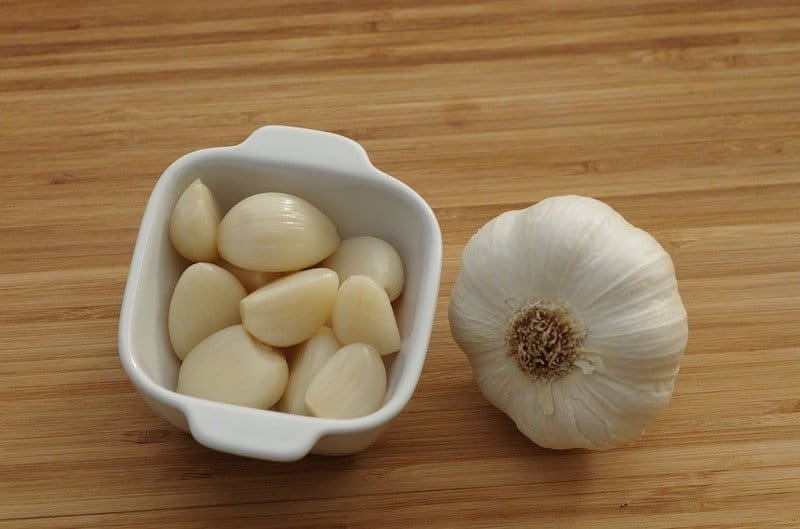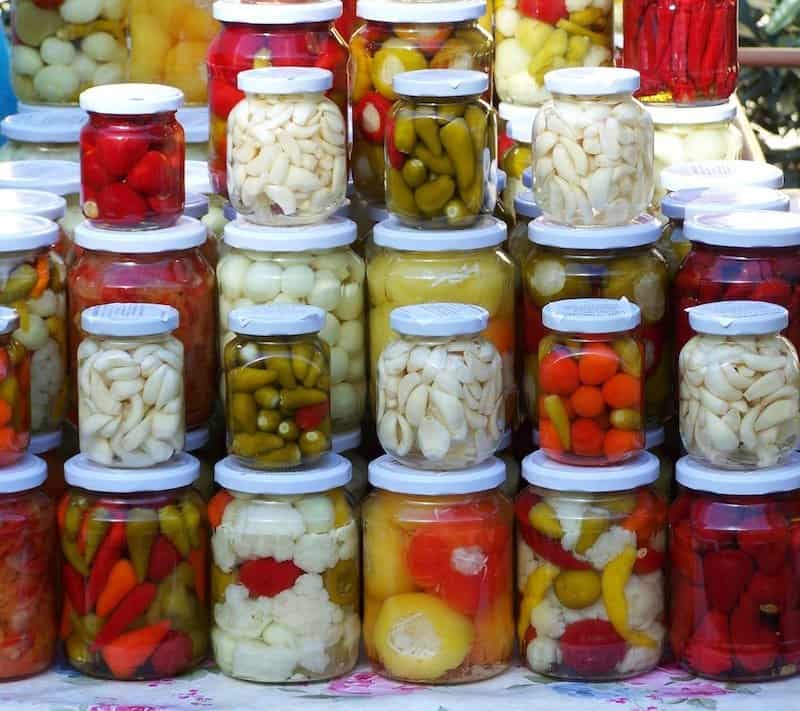Can You Ferment Garlic in Vinegar?
Do you know the difference between pickling and fermenting food?
Like fermenting, pickling is another method of preserving food, but it entails using acidic brine to store food. In both cases, food can have a sour taste. With fermenting, that taste occurs from natural bacteria. As for pickling, the sour flavor comes from acids. For example, you might never consider bread sour, but sourdough bread is made using fermentation.
Vinegar is a key ingredient for pickling vegetables, garlic being a very popular one. But, can you ferment garlic in vinegar? You can pickle garlic in vinegar, but you can’t ferment garlic or any other vegetable in it. Continue reading for the detailed answer.
Can You Ferment with Vinegar?
No, vinegar cannot be used to ferment. If you were to use vinegar, this would qualify as pickling. Vinegar and other acidic liquids can be used for pickling, which involves boiling a vinegar solution and then pouring it over something like cucumbers (to turn them into pickles), which helps preserve foods and allows for a longer shelf life.
What can get a bit confusing is that there is a specific type of pickling that incorporates fermentation, known as fermentation pickling, but this doesn’t involve the use of vinegar.
Vinegar is made by converting sugar into alcohol, which is then fermented into vinegar. Now, you can add vinegar into mixtures that you are fermenting, but the vinegar in this case is all about adding flavor, while not contributing to the fermentation process in any way. Simply put, fermentation is not caused or aided by vinegar.
What Happens When You Put Garlic in Vinegar?
When you store garlic in vinegar, you’re essentially pickling it. Vinegar-pickling is a great way to preserve garlic and prolong its lifespan. Eating such garlic is healthy for the gut and immune system, as vinegar is a natural prebiotic on which friendly gut bacteria feed. Therefore, it stimulates their growth and helps maintain a healthy gut flora balance.
Once you put garlic in vinegar, it’ll have to stay there for one or two weeks. It’s essential to be patient and let the vinegar work its magic. After this period, you can try the garlic and see if you like the flavor. If you leave the garlic in vinegar, it won’t spoil.
In fact, the distinct garlic flavor will reduce significantly, and you’ll be able to enjoy the mellow taste. Whether you leave the garlic in vinegar for one or three weeks depends on your preference. After opening the bottle, you can use the garlic to make dressings, put it on pasta, pizza, or meat.
Unlike with oil, garlic in vinegar won’t support the growth of dangerous bacteria. So there’s no need to worry about botulism. It’s also worth mentioning that you can keep the jars at room temperature, and the content won’t go bad. After opening the jar, put it in the fridge to prolong the lifespan of the garlic.
Why Does Garlic Turn Blue in Vinegar?
After putting garlic in vinegar, many people are confused about why it turns blue or even green. They almost immediately assume such garlic isn’t safe for consumption and want to throw it away. Before you do the same thing, bear with me.
While the blue or the grey garlic color may look odd or even poisonous, it’s actually perfectly normal. The color is a result of the chemical reaction that occurs when garlic and acids like vinegar mix.
Garlic contains allicin and amino acids, among other components. Allicin reacts with amino acids when exposed to vinegar, creating pyrolles. When different pyrolles connect, they create polypyrroles, responsible for the strange garlic color. While three pyrolles are responsible for the blue color, four pyrolles will make garlic green.
While the sight of the green or blue garlic may not be pleasant, there’s no need to worry if this happens to you. In fact, some nationalities prefer such garlic and eat it on special occasions.
In Summary
To get things straight, there is a big difference between fermentation and pickling. If you’re placing a vegetable in an acidic brine, like vinegar, that means your pickling it instead of fermenting it.
In other words, you can’t ferment garlic in vinegar, but you certainly can pickle garlic in vinegar! More importantly, you can do it safely and without the risk of getting sick, unlike if you were to put garlic in olive oil for fermenting.
If you’re interested in learning more about fermenting vegetables, click here.








